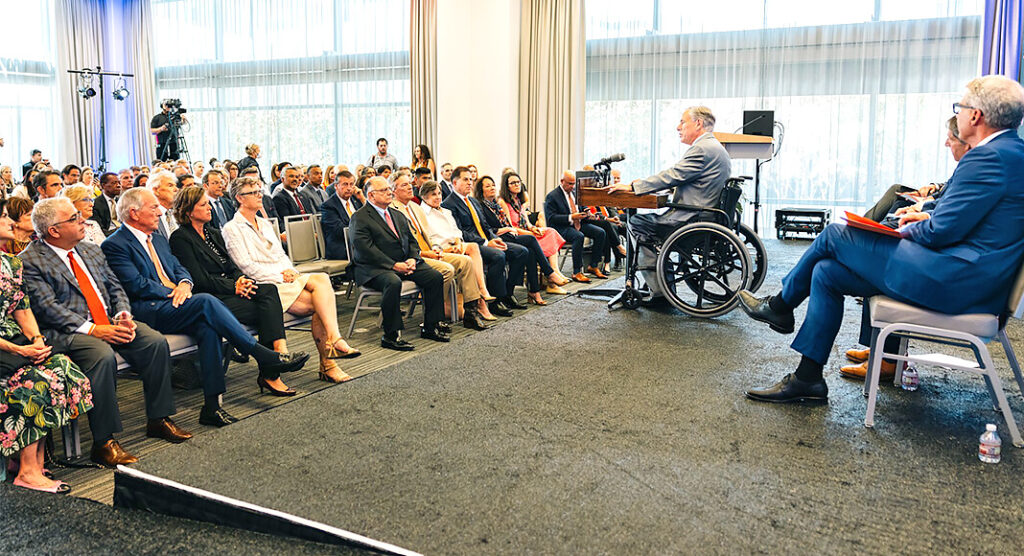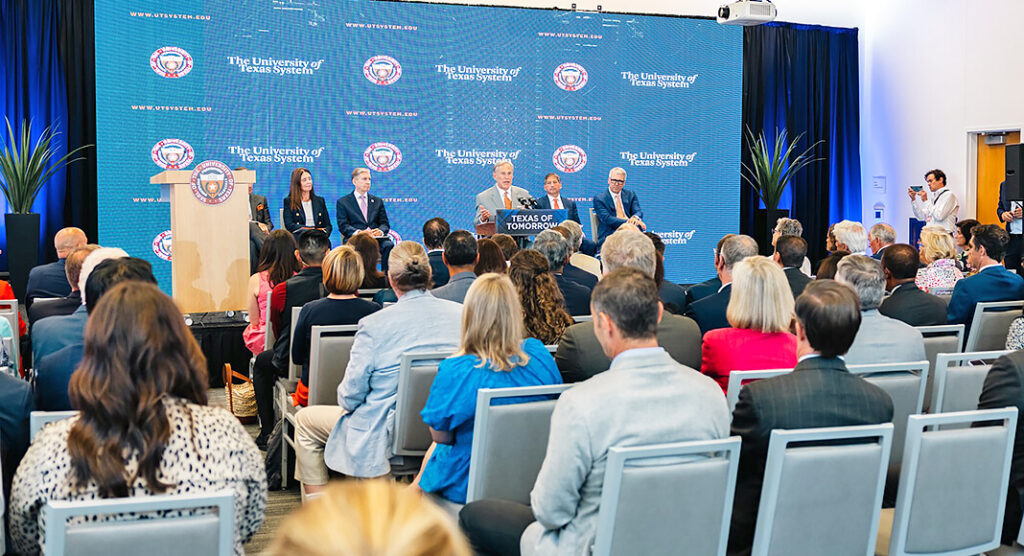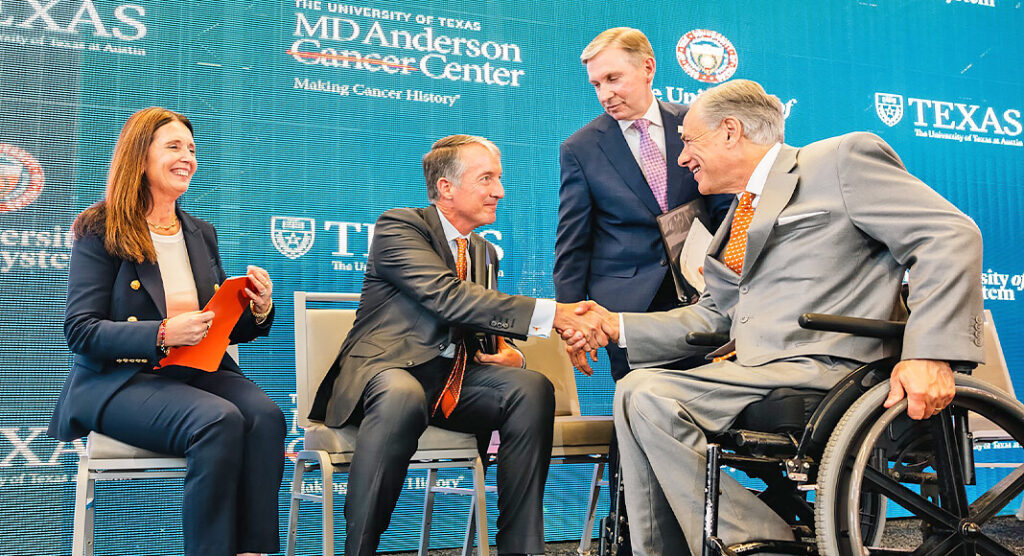
Mega Doctor News
AUSTIN, Texas – Governor Greg Abbott today joined members of The University of Texas (UT) System Board of Regents to announce a transformative partnership between UT Austin and UT MD Anderson Cancer Center to build a new hospital and comprehensive cancer care center on UT Austin’s campus, bringing the nation’s top-ranked oncology clinicians and health care providers to Austin.

“The State of Texas has been on a mission to use higher education to expand access to healthcare, and today marks a giant step towards achieving our goals,” said Governor Abbott. “UT MD Anderson Cancer Center is ranked No. 1 for cancer care in America, with people across the world traveling to Houston to access care. But rather than having Texans travel to MD Anderson in Houston, we will now bring the world’s best treatment to them. Families across Central Texas who are affected by cancer every year can now stay close to home for that care. The key to building sustainable communities is a healthcare infrastructure that can meet the needs of a booming population. UT Austin and MD Anderson will help us meet those needs. The Texas of tomorrow will be shaped by what UT Austin and MD Anderson are building here today.”

The Governor was joined at the press conference by the UT System Board of Regents Chairman Kevin P. Eltife, UT System Chancellor James Milliken, UT Austin President Jay Hartzell, Dean and Senior Vice President for Medical Affairs for Dell Medical School at UT Austin M.D., Claudia F. Lucchinetti, and MD Anderson Cancer Center President Peter Pisters.
The UT MD Anderson Cancer Center will be staffed by MD Anderson physicians, increasing access to world-class cancer care to Central Texas patients. This partnership will take UT’s flagship campus and its Dell Medical School to the next level of research excellence, allowing both institutions to conduct research, educate the next generation of medical students, and enhance patient care. Last year, UT Austin and UT MD Anderson had a combined $1.8 billion in research, almost half of all the research expenditures across the UT system’s 13 institutions.









